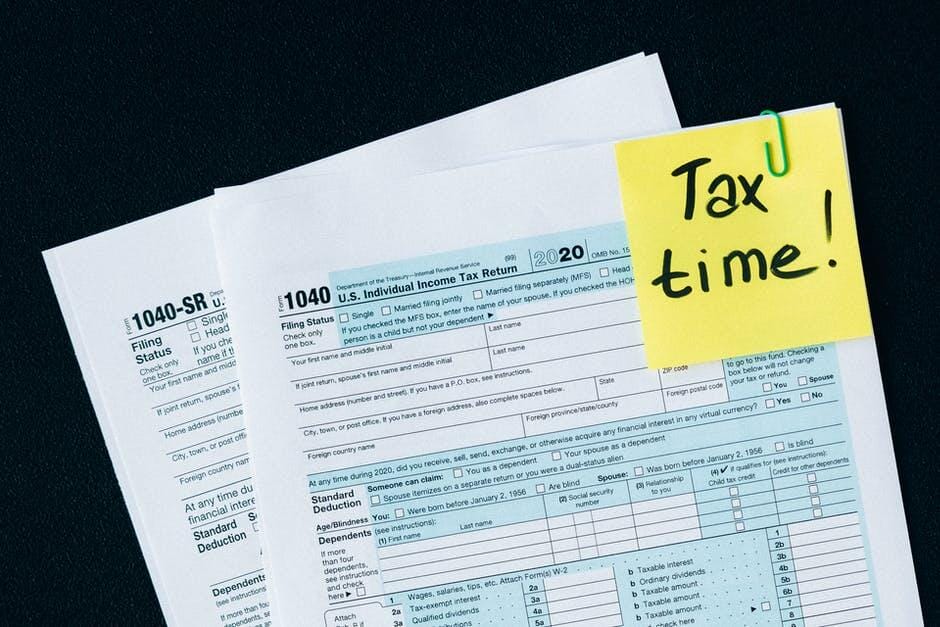Tax filing in the US can be confusing and time-consuming. But, with the right tips and tricks, you can easily file your income taxes without breaking the bank. If you are required to file a simple tax return or fulfill certain specific income requirements, use tax filing software or programs sponsored by the IRS.
For residents of the City of Columbus, taxable income includes all salaries, wages, commissions, and other compensation regardless of where it was earned. At the same time, for nonresidents, taxable income is any salary or compensation earned in any of the municipalities for which Columbus administers the income tax.
Net profits of all unincorporated businesses such as real estate, rentals, sole proprietorships and partnership income share are taxable in the City of Columbus. Let’s explore the critical details about the City of Columbus income tax for a smoother tax filing process. Try the Beem app to file your income taxes for the best price and maximum refund.
Important Things to Know About City of Columbus Income Tax
Residents of the City of Columbus must pay a tax of 2.50% on their earned income. This amount is in addition to the Ohio and federal income taxes. Nonresidents who work in Columbus also pay a local income tax of 2.50%. Any nonresident taxpayer engaged in a business in the city must file an annual return, even if they claim a loss in a given year.
You are required to file the City of Columbus, Ohio income tax if:
1. You filed and paid taxes during last year’s season.
2. You are a Harrisburg or Marble Cliff resident, not exempt from tax payments. Those exempted from paying taxes must be under 18 or receive pension income or military pay.
3. You earned income in a municipality governed under the City of Columbus, including Columbus, Brice, Canal Winchester, Groveport, Harrisburg, Marble Cliff and Obetz.
4. You are a resident of one of the municipalities conducting business or professional activities in the region.
How to file taxes in the City of Columbus
The most productive way to file tax returns in the City of Columbus, Ohio Income Tax is through CRISP (Columbus Revenue Information Service Portal) at crisp.columbus.gov. The decision was taken to enhance the safety of taxpayers’ personal information.
In the City of Columbus, individuals and businesses who owe $200 or more in income tax for the current year can make quarterly estimated tax payments. These payments then must total at least 90% of the total tax liability as reported on the current year’s tax return or at least 100% of the tax liability stated on the income returns of the previous year. Taxpayers will be subject to penalty and interest if the due dates do not make the payments.
The Columbus income tax is typically due on April 15. If you plan to file your taxes, the Columbus tax collector will mail you a copy of the required tax forms before April.
Excise taxes
An excise tax is a tax levied on certain goods by the government. The Ohio state government collects excise taxes through fuel tax on gasoline and the infamous “sin tax” on cigarettes and alcohol. The Ohio government collects an average of $438 in excise taxes per capita every year. It is approximately 52% lower compared to other states.
Capital Gains Tax
Capital gains are an increase in the value of a capital asset from the value at which it was initially purchased. Some assets include real estate, stocks, a car, or a boat. , any significant property that has the potential of gaining or losing value over time is considered a capital asset. Traditionally, Capital gains are only taxed if realized while filing tax returns. For instance, if your Apple stock has increased 10x from the day you invested, you will not owe any capital gains taxes to the authorities until you sell the stock. You must pay federal and state capital gains taxes when you sell the stock. Capital gains are not taxable in the City of Columbus income taxes.
City of Columbus Income Tax: Sales Tax
Sales tax rates of a region are determined by their exact street address. It is imposed on selling goods and services in most states, including Ohio. Columbus, Ohio’s minimum combined sales tax rate is 7.5%. It consists of the state, county, and city sales tax rates. The Ohio sales tax rate is 5.75%, while the County sales tax rate is 1.25%. Columbus, separately, does not have a sales tax.
City of Columbus Income Tax: Property Tax
In the City of Columbus, property taxes are collected by Franklin, Fairfield, and Delaware counties. They are typically remitted to the City on a semi-annual basis. The property tax revenue is used for three purposes – debt service requirements, partial payment of police and fire pension costs, and general fund operations.
It is critical to note that property tax rates in the state of Ohio are higher than the national average (currently 0.99%). The average property tax rate in Ohio is 1.41%.
Franklin County, which contains the state capital of Columbus, has the third-highest property tax rate in Ohio, at 2.06%.
City of Columbus Income Tax: Gas Tax
The excise tax on gasoline in Ohio is around 28.00¢ per gallon. It is about 58% higher than the other states. Notably, Ohio’s excise tax on gasoline is ranked 21 out of the 50 states. Furthermore, it is included in the pump price across all gas stations in the state.
City of Columbus income tax: Estate Tax
In the state of Ohio, the estate tax in 2024 is 0%. As a result, you will not owe Ohio estate taxes when passing on your assets to your family members. However, all estates and trusts carrying out businesses in the City of Columbus must file a city business return (Form BR-25) and report all net profits or losses from the business activity.
City of Columbus Income Tax: Cigarette Tax
Ohio levies an excise tax on cigarettes at around $1.25 per 20 cigarettes. It is about lower than 56% of the other 50 states. Furthermore, Ohio’s cigarette excise tax is ranked at 28 nationwide. The $1.25 Ohio cigarette tax automatically applies to every 20 cigarettes sold. It could increase if a pack contains more than 20 cigarettes.
City of Columbus Income Tax: self-employment-tax
The City of Columbus does impose income tax, Here is what you need to know about the Ohio self employment tax
Tax rate:
The Ohio self employment tax totals 15.3%, with 12.4% covering Social Security and 2.9% going to Medicare.
Filing requirements:
You must file a Columbus tax return if:
• You are a resident of Columbus and have self-employment income.
• You are not a resident but work in Columbus and have self-employment income.
• Your employer did not withhold the full amount of Columbus income tax on your wages (even if you are not self-employed).
City of Columbus Income Tax: Alcohol Tax
Ohio levies special excise taxes on the sale of all types of alcoholic beverages, divided into specific taxes on Wine, beer, and hard liquor. The state tax department contains alcohol taxes as “sin taxes”.
While the Ohio excise tax on liquor is $9.34 per gallon, it is $0.18 per gallon on beer. Furthermore, the excise tax on Wine is $0.32 per gallon. The alcohol tax is included in the purchase price by the retailer in the state.
Franchise Income Tax
Business enterprises in the City of Columbus must file an annual return on Form BR-25 and a Declaration of Estimated Tax on Form BR-21. Here are the business entities that are required to file income tax in the City of Columbus:
• Associations get their income from work or services rendered and business conducted in Columbus.
• Corporations and Fiduciaries (Estates and Trusts) obtain their income business in Columbus.
All eligible taxpayers engaged in business in Columbus must file an annual return, even if the business sustains a loss. All business entities must declare estimated city income tax per state rules.
It is important to note that nonprofit businesses are not mandated to file an annual city tax return if they have submitted an IRS determination letter to the City.
Corporate income tax
Ohio does not have a corporate income tax. However, it levies a gross receipts tax. Ohio’s state sales tax rate is 5.75%, with a max local sales tax rate of 2.25%. Furthermore, the average combined state and local sales tax rate is 7.24%.
You will typically have to remit two types of city taxes: the net profits tax and (if you have employees) the employee withholding tax.
The first is the tax due on your business’s profits, whether your business is a sole proprietorship, corporation, or partnership. Incidentally, all the cities whose taxes are administered by Columbus tax the net profits earned within each City by S-corporations at the corporate level. As such, the individual shareholders of S-corps are not taxed. Columbus and Harrisburg require partnerships and limited liability companies (LLCs) to file and remit at the business level on behalf of all partners. All businesses, except sole proprietorships, file city taxes using Form BR-25. Additional information on the net profits tax for businesses other than sole proprietorships is available in the instructions for the BR-25.
Sole proprietorships file by reporting their Federal Schedule C income on the proprietor’s individual city return (Form IR-25). Additional information is available in the instructions for the IR-25.
You must establish a withholding account with us to remit the second type of tax, the tax withheld from your employee’s wages. You do this by filing a Form IT-47, a simple questionnaire. Employers are liable for all City withholding taxes that should have been withheld from their employees’ wages, EVEN if those taxes were not. Because of this obligation, you’ll want to set up your employer withholding account as soon as you hire employees. Registration online is available through crisp.columbus.gov.
Conclusion
Taxpayers are encouraged to log in to the new CRISP portal when filing tax returns or making payments. If taxpayers want assistance with their Federal or State returns, contact the IRS at 1 (800) 829-1040 or the Ohio Department of Taxation at 1-800-292-1780.
Every return filed during the tax season is unique and requires auditing before a refund can be issued. Under the state law, municipalities don’t have to pay interest on any overpayment so long as it is refunded within ninety days after the final filing date of the annual return or ninety days after the completed return is filed, whichever is later. However, the Division strives to process returns more quickly than that. Visit Beem Tax Calculator for a free, quick, and accurate estimate of your income tax refund.
FAQs
Is the City of Columbus income tax high?
No, the income tax rate in the City of Columbus is not high. The Columbus Income Tax Division collects 2.5% income tax for the City of Columbus.
Is the City of Columbus income tax-friendly?
Yes, the City of Columbus income tax is friendly for taxpayers. They can file tax returns and make payments for the City of Columbus Income Tax through CRISP (Columbus Revenue Information Service Portal) at crisp.columbus.gov.
Is the City of Columbus a good place to live for taxes?
The City of Columbus is a good place for people to live, thanks to its significantly lower tax rates.




